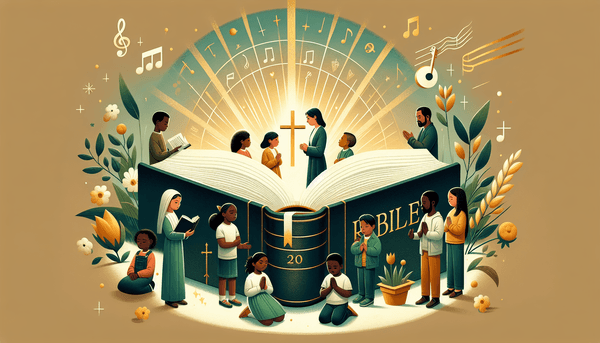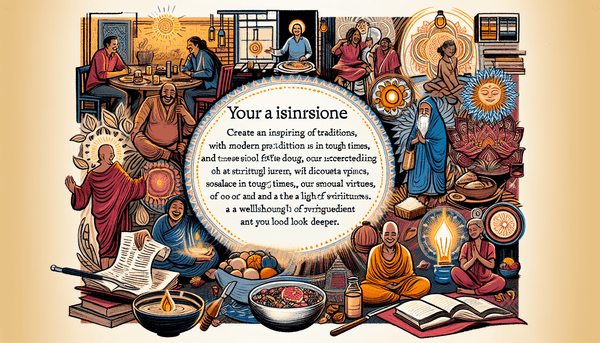The Role of Bible Translations
Translations like the New International Version (NIV) strike a delicate balance between readability and fidelity to the original manuscripts, aiming to convey the Bible's timeless messages to a contemporary audience. The English Standard Version (ESV) and the New Revised Standard Version (NRSV) offer alternative approaches, each with its own merits in terms of literal accuracy and literary style. For instance, Proverbs 11:2 in the NIV states, 'When pride comes, then comes disgrace, but with humility comes wisdom,' highlighting the perils of arrogance and the virtue of humility. Such translations, including the storied King James Version (KJV), provide a range of linguistic choices that can impact the interpretation of biblical teachings, encouraging readers to explore the depths of scripture through different lenses.
The Concept of Judgment and Afterlife in Christianity
In the Christian narrative, the finality of judgment and the afterlife is certain, yet the concept of purgatory is not found within the Bible's pages. Instead, scriptures such as Hebrews 9:27, 'Just as people are destined to die once, and after that to face judgment,' affirm the inevitability of divine judgment. The book of Revelation (20:12-15) details the final judgment without mention of a purgatory, and 2 Corinthians 5:8 suggests a believer's immediate presence with the Lord after death. These passages reflect a range of beliefs within Christianity, where some traditions, like Catholicism, embrace the idea of purgatory through theological interpretations that extend beyond the explicit text of the Bible.
The Pathway to Eternal Life and the Narrow Gate
Jesus' instruction to 'Enter through the narrow gate' (Matthew 7:13-14) symbolizes the deliberate choice and often challenging journey of the Christian life. This metaphorical gate represents the discerning path to eternal life, contrasting with the wide gate leading to destruction. Followers of Christ are encouraged to persevere in their faith despite the hardships, drawing strength from scriptures such as John 14:6, where Jesus affirms He is 'the way and the truth and the life.' The Psalms also offer guidance, with Psalm 1:1-2 extolling the virtues of delighting in the law of the Lord and meditating on it day and night.
FAQ
Q: What translation of the Bible is used in the phrase 'Knock and the door shall be opened'?
A: The phrase 'Knock and the door shall be opened' aligns with common English translations such as the New International Version (NIV), which is known for its balance between readability and faithfulness to the original texts.
Q: Can you initiate a conversation on the Word?
A: Certainly, discussing the Word is beneficial for growth in understanding. It's insightful to explore how different translations render specific verses to deepen appreciation for the nuances of biblical text.
Q: What scripture talks about God telling you when you get to heaven about the people you should have helped or witnessed to?
A: There isn't a specific verse that details God speaking about the people one should have helped or witnessed to upon reaching heaven. However, the Bible does emphasize the importance of evangelism, such as in the Great Commission (Matthew 28:19-20), and suggests that believers will give account of their lives (Romans 14:12).
Q: What translations are there for Proverbs 11:2?
A: Proverbs 11:2 has been translated in various versions including the NIV, ESV, NRSV, and KJV, each offering a slightly different wording that can enhance our understanding of the text.






